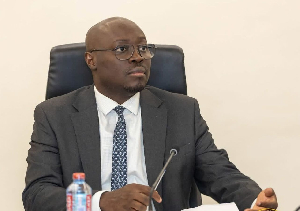During the COVID-19 pandemic, many activities have become virtual. Working, socializing, and even banking have increasingly moved online.
Safaricom, the largest telecommunications provider in Kenya, saw growth in its money transfer platform M-Pesa as it waived fees for small transactions, in an effort to limit the spread of the coronavirus through in-person payments.
Launched in Kenya in 2007, M-Pesa is now available in seven African countries and used for transactions worth $12 billion each month, according to Safaricom CEO Peter Ndegwa.
He believes that by encouraging people to use online services, Covid-19 has accelerated connectivity in Africa. Ndegwa recently spoke with CNN's Eleni Giokos about the impact of the pandemic and how the telecommunications industry can help connect the continent.
Peter Ndegwa: In terms of managing through Covid, our first priority as a business was to make sure that we keep the country connected. We have 38 million customers that we serve either for data or voice.
The second thing was to use the M-Pesa platform as a way of reducing cash handling. Then third, of course, was recognizing that everyone was staying [at] and working from home. We doubled bandwidth on the home fiber side.
EG: Do you think that the pandemic has accelerated the move to a more digitized Africa?
PN: Yes, for sure. There was no question that we were already leading on the digital front with mobile money. Africa is probably more advanced than many of the other markets I worked in Europe. I can say that for sure. M-Pesa is probably one of the most successful mobile money platforms around the world, both within the country, but also with international money transfers and enabling trade. For example, you can transact with 200 countries.
EG: When we talk about the African Continental Free Trade Area, do you think that it will help facilitate easier trade if we have a strong telecommunications industry?
PN: For sure. Telecommunication businesses will make a big difference to free trade in Africa.
I'm really delighted to have worked in both East Africa and also in the West, in Ghana and Nigeria -- and seeing how little trade flows across between East and West, I think there's a real opportunity to enhance that, and telecommunication companies play a big role.
But also, it is about connecting the communication infrastructure and the mobile money infrastructure. I believe that mobile telecommunication and mobile money companies will play a big role going forward.
Africa News of Sunday, 2 May 2021
Source: edition.cnn.com













